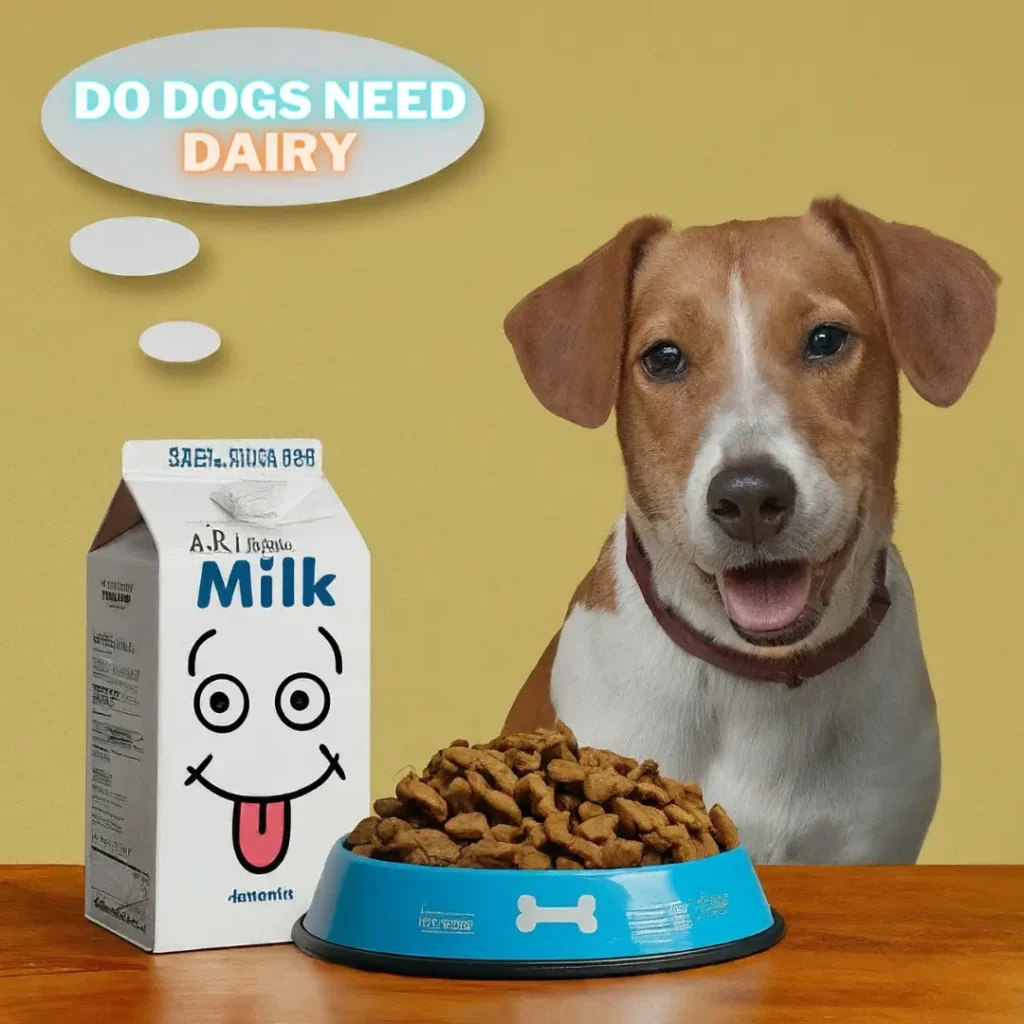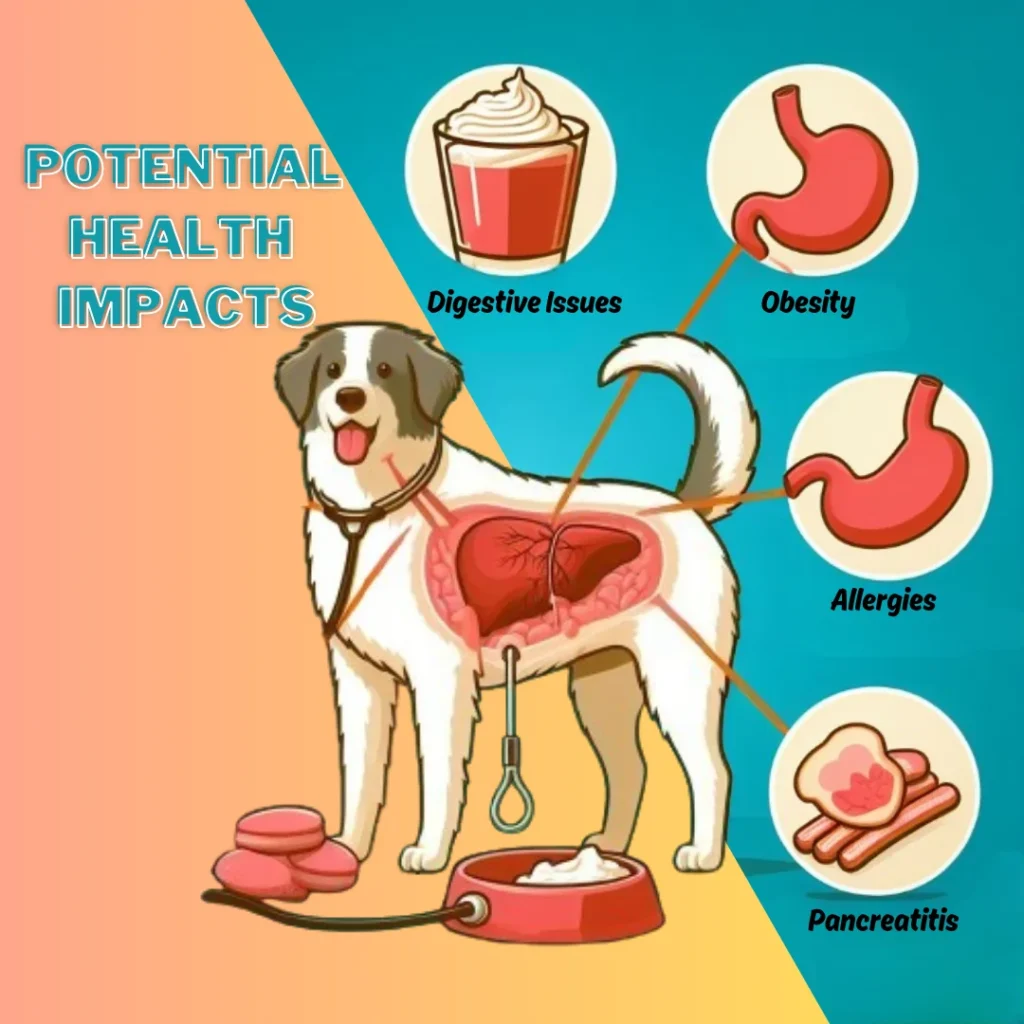As dog owners, we often find ourselves wondering about the safety of certain human foods for our furry companions. One such treat that has sparked curiosity is whipped cream. Can dogs have whipped cream? The answer may not be as straightforward as you might think. In this comprehensive blog post, we’ll delve into the truth behind this sweet dilemma and explore whether or not our canine friends can indulge in this creamy delight.

Table of Contents
What is Whipped Cream? Understanding the Basics
Before we dive into the implications of feeding whipped cream to dogs, let’s first understand what it is. Whipped cream is a dairy product made by whipping cream with a whisk or mixer until it becomes light and fluffy. It’s often used as a topping for desserts, hot beverages, and various sweet treats. Whipped cream typically contains milk fat, sugar, and sometimes additional flavorings or stabilizers.
The Canine Diet: Do Dogs Need Dairy?

Dogs are naturally omnivorous, meaning they can derive nutrients from both plant and animal sources. However, their dietary needs differ from humans, and dairy products are not a necessary part of their diet. In fact, many dogs struggle to digest lactose, the natural sugar found in milk and dairy products, due to a lack of the enzyme lactase. It is important to recognize lactose digestion problems and whipped cream’s high fat content when considering whether whipped cream is bad for dogs.
Canine health impacts of whipped cream

While a small amount of whipped cream may not cause immediate harm to most dogs, Can Dogs Have Whipped Cream it’s important to understand the potential health impacts of feeding this treat to your furry friend. Considering whether is whipped cream good for dogs involves examining various factors such as the high-fat content and potential for lactose intolerance.
- Digestive Issues: As mentioned earlier, dogs often lack the necessary enzyme to break down lactose, leading to gastrointestinal discomfort, diarrhea, and other digestive problems.
- Obesity: Whipped cream is high in fat and calories, which can contribute to weight gain and obesity in dogs if consumed in excess.
- Allergies: Some dogs may be allergic to milk proteins or other ingredients found in whipped cream, leading to skin irritation, itching, or other allergic reactions.
- Pancreatitis: The high-fat content of whipped cream can potentially trigger pancreatitis, a serious condition characterized by inflammation of the pancreas.
Lactose Intolerance in Dogs: A Common Concern
Lactose intolerance is a common issue in dogs, as their bodies typically stop producing the enzyme lactase after weaning. This means that they may have difficulty digesting lactose, which is found in whipped cream and other dairy products. Symptoms of lactose intolerance in dogs can include bloating, gas, diarrhea, and abdominal discomfort.
Therefore, it’s essential to consider whether can dogs eat whipped cream, given their potential lactose intolerance. Additionally, evaluating is whipped cream ok for dogs is crucial due to its lactose content.
Store-Bought vs. Homemade: Whipped Cream Varieties
When considering whether or not to feed whipped cream to your dog, it’s essential to distinguish between store-bought and homemade varieties.
- Store-bought whipped cream often contains additives, preservatives, and artificial sweeteners that can be harmful to dogs.
- Homemade whipped cream, made with simple ingredients like heavy cream and a small amount of sugar, may be a safer option if given in moderation.
Really Can Dogs Have Whipped Cream?
While the occasional small amount of whipped cream may not cause significant harm to most dogs, Can Dogs Have Whipped Cream it’s important to exercise caution and moderation. The high-fat content and potential for lactose intolerance make whipped cream a less-than-ideal treat for our canine companions.
Moderation Matters: How Much is Too Much?
If you decide to give your dog a small taste of whipped cream, it’s crucial to practice moderation. A tiny amount, such as a teaspoon or less, is generally safe for most dogs. However, it’s essential to monitor your dog’s reaction and stop giving them whipped cream if they exhibit any signs of digestive distress or discomfort. When selecting dog treats, ensure they are safe to consume for your pet by considering can dogs have cool whip.
Healthy Alternatives to Whipped Cream for Dogs
Instead of whipped cream, consider offering your dog healthier treats that are specifically formulated for their nutritional needs:
- Dog-friendly fruits and vegetables, such as carrots, blueberries, or apple slices
- Commercial dog treats made with high-quality, natural ingredients
- Homemade treats using dog-safe ingredients like peanut butter, oats, and mashed bananas
These alternatives provide a tasty reward for your furry friend without the potential risks associated with whipped cream.
Expert Opinions: What Veterinarians Say
Many veterinarians and animal experts advise against feeding whipped cream to dogs due to the potential health risks. Dr. Jennifer Coates, a veterinary writer and editor, states, “While a small amount of whipped cream is unlikely to cause serious problems in most dogs, it’s not a food that I would recommend feeding to pets on a regular basis.”
Similarly, the American Kennel Club (AKC) cautions against feeding dairy products to dogs, as they can cause digestive upset and other health issues. The AKC recommends sticking to dog-safe treats and avoiding human foods that may be harmful to our four-legged friends.
Summary
While a small taste of whipped cream may not necessarily harm your dog, it’s generally best to avoid feeding them this dairy-based treat. The potential for lactose intolerance, digestive issues, and other health concerns outweigh any potential benefits. Instead, focus on providing your canine companion with a balanced diet and healthy, dog-friendly treats that cater to their specific nutritional needs.
Remember, moderation is key when it comes to treats, and it’s always wise to consult with your veterinarian before introducing new foods into your dog’s diet. By making informed choices and prioritizing your dog’s well-being, you can ensure a happy, healthy, and well-nourished furry friend for years to come.




